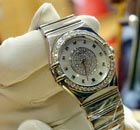Global Biz
Pressing on yuan to hurt US economy: US media
(Xinhua)
Updated: 2010-03-19 04:49
 |
Large Medium Small |
WASHINGTON - The efforts by U.S. legislators to pressure China to reform its currency is to make China a scapegoat of the U.S. domestic politics, and may actually hurt the U.S. economy, according to articles published by U.S. well known media in recent two days.
The Wall Street Journal said Thursday that U.S. lawmakers "want to make the yuan a scapegoat and risk a trade war with China," referring to the U.S. Senators' bill proposed Tuesday to call for China to appreciate its currency yuan.
"China is right to resist these calls, not least because a large revaluation could damage China's growth," the Wall Street Journal said in its Review and Outlook column. "China has helped to lead the global economy out of this recession, and the world needs that to continue."
In another article titled "Pressing China on the yuan won't work," which was published by the Time magazine website on Wednesday, Michael Schuman said that the Schumer bill "clearly shows how politicized the yuan has become."
The article said that Beijing is "an easy target for Americans worried by high unemployment and an uncertain recovery to blame for the country's economic woes."
But "a stronger yuan isn't a panacea to American economic problems."
Schuman said that "there is a belief that if China allowed the yuan to appreciate, U.S. industry would become more competitive and the giant trade deficit with China would evaporate. But that could very well be wishful thinking."
He pointed out that when the yuan was appreciating against the U.S. dollar, from 2005 to 2008, the U.S. trade deficit with China actually increased.
"In fact, a stronger yuan might actually be detrimental to the U.S. economy in certain key ways," he said.
A more expensive yuan is making all of those Chinese goods at your local Wal-Mart more expensive -- and that's not good for a U. S. consumer already burdened by debt and job instability.
Besides, the U.S. cannot reverse the greater trends set in motion by globalization by altering the value of the yuan.
Schuman said that if China morphs into a more expensive place to manufacture (which will inevitably happen over time) there is no shortage of other countries with lower costs that can replace China as a base for exporters of consumer goods. Exporters might move to Vietnam, India, Indonesia, Bangladesh, and so on.
The article also said that the Chinese are highly sensitive to criticism and pressure on this front, and threats from the U.S. Senate only corners Beijing into a position where it becomes politically difficult for the government to take any action.










